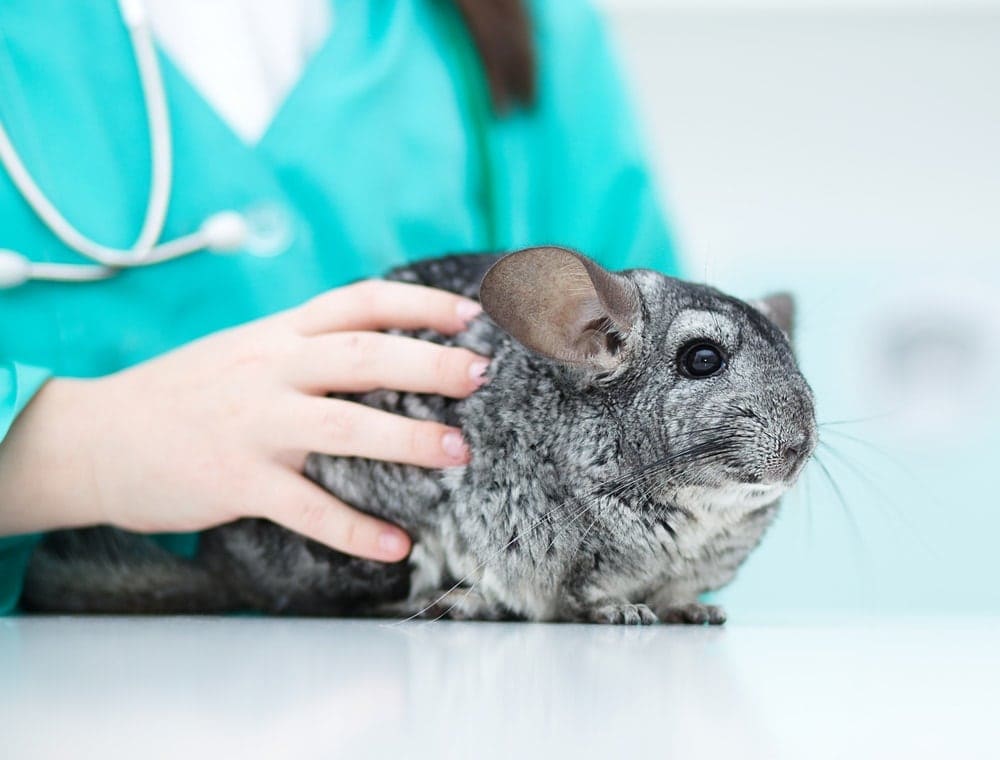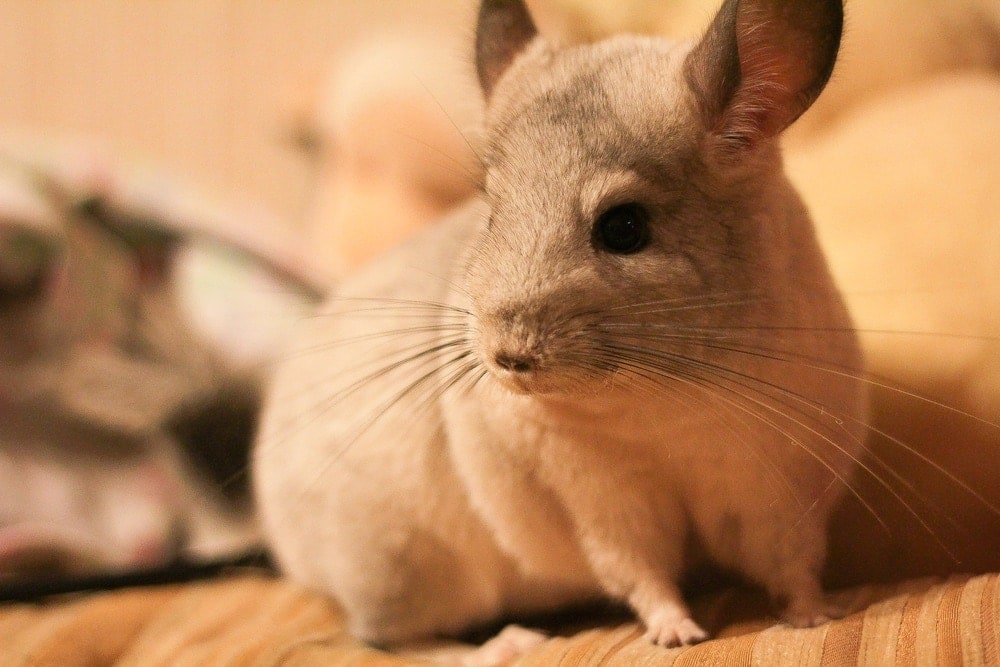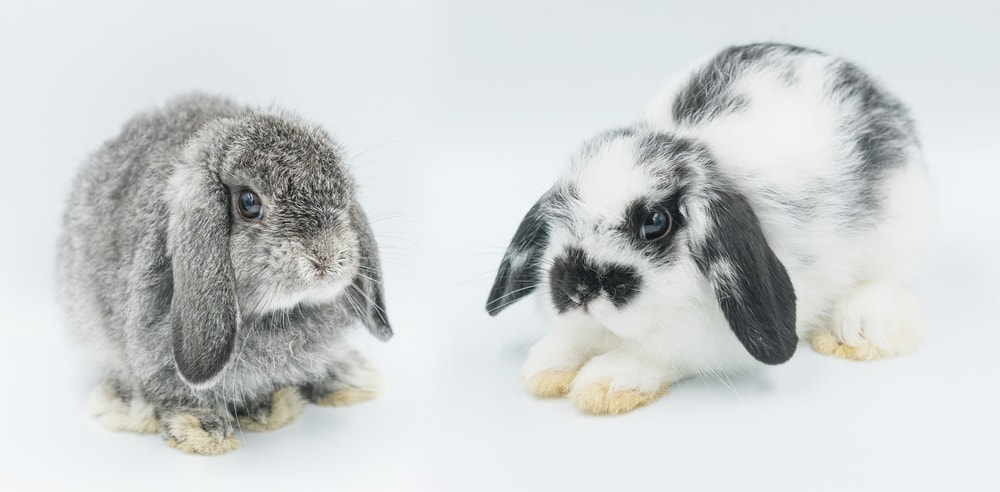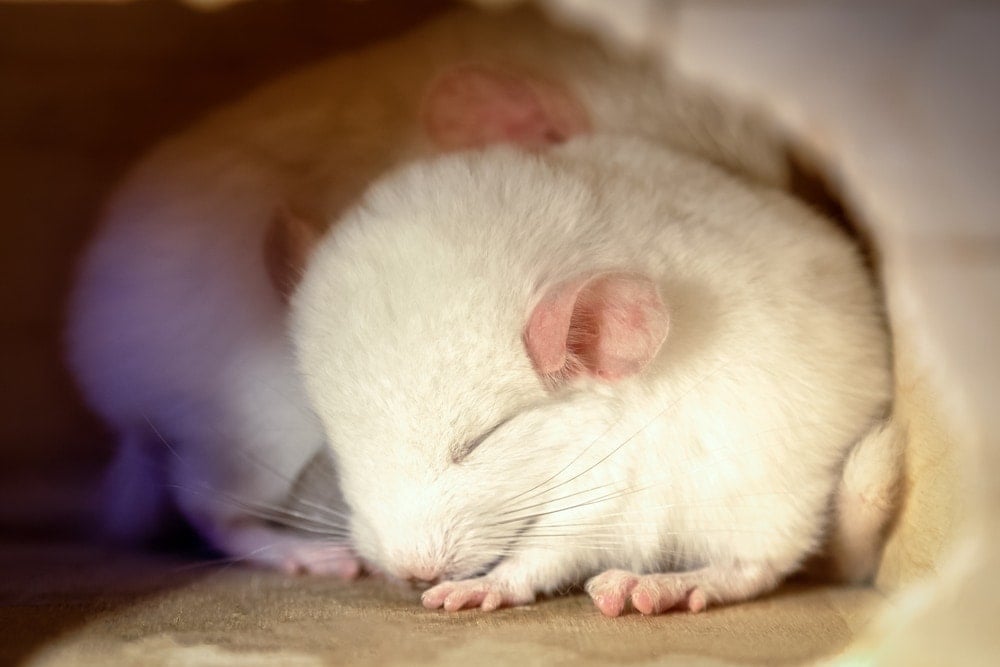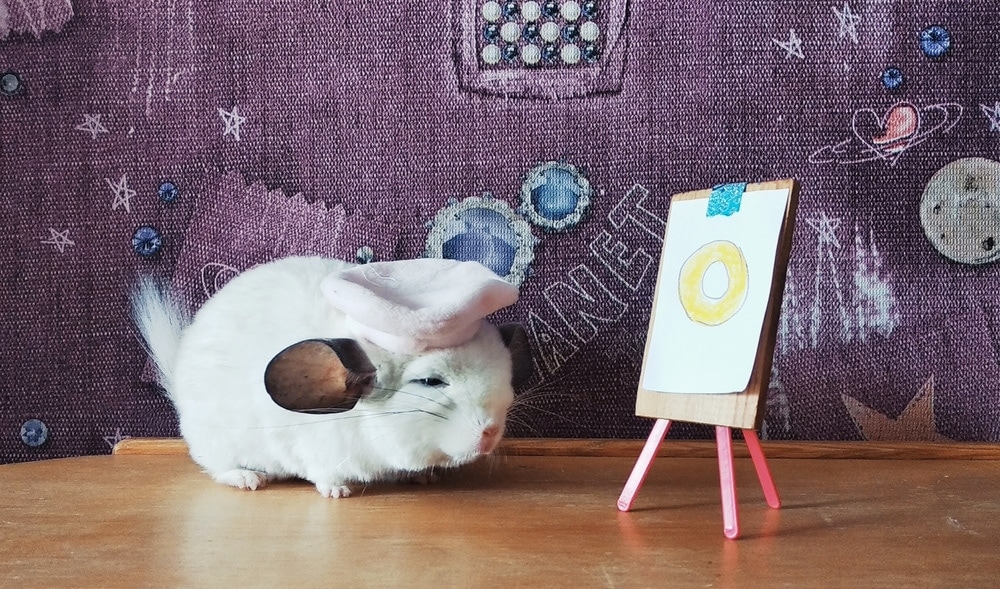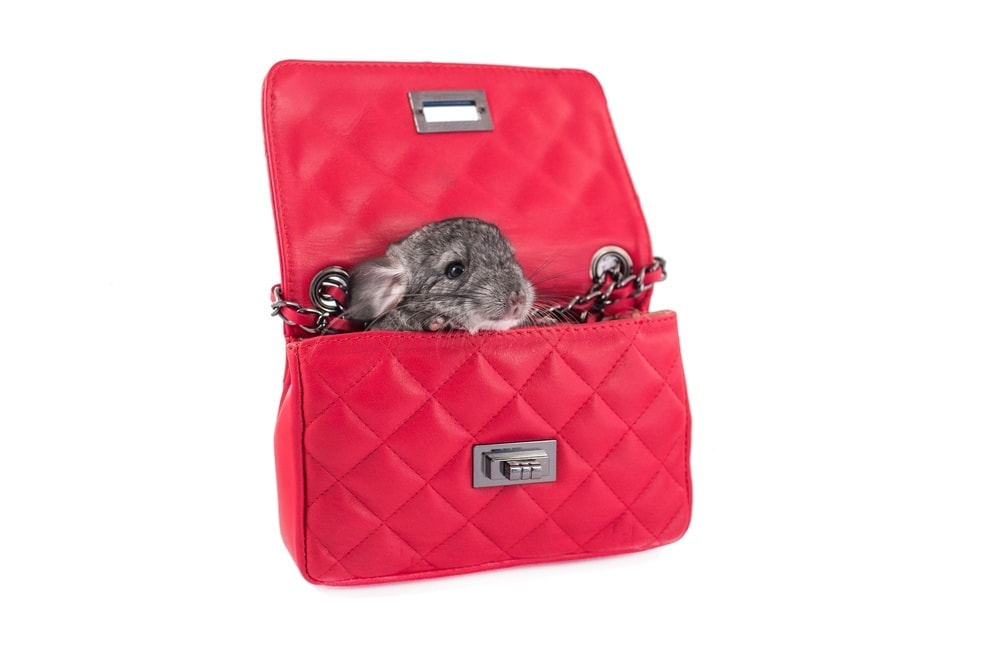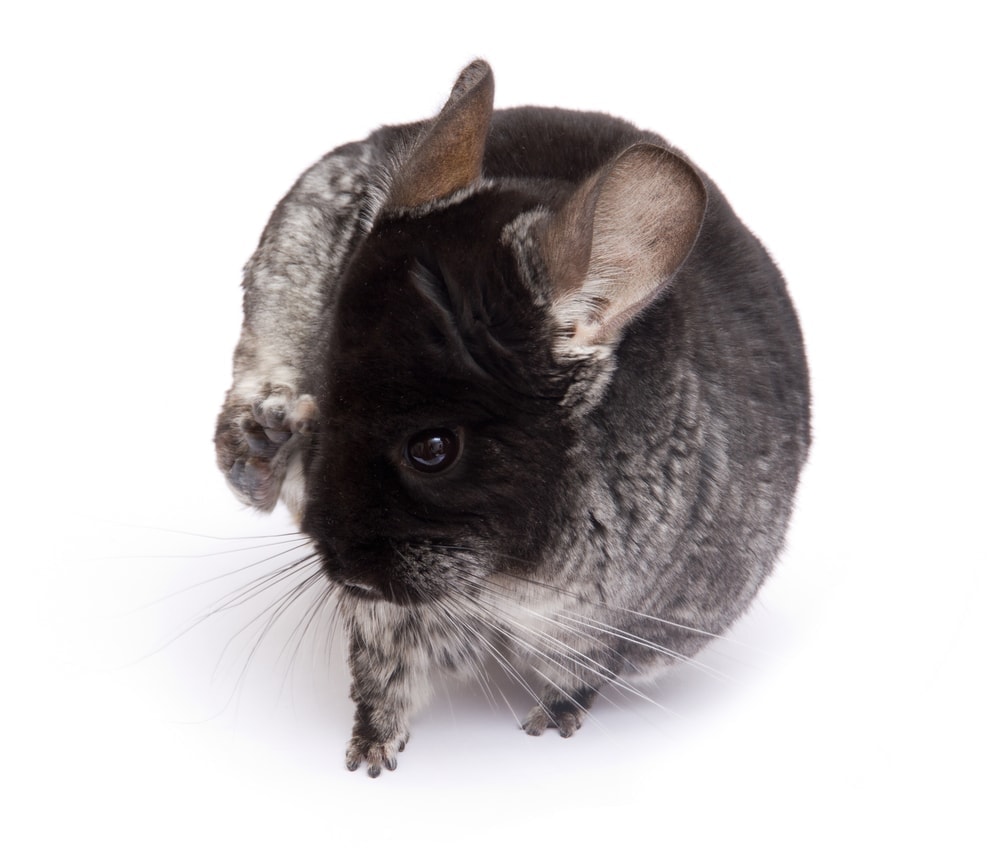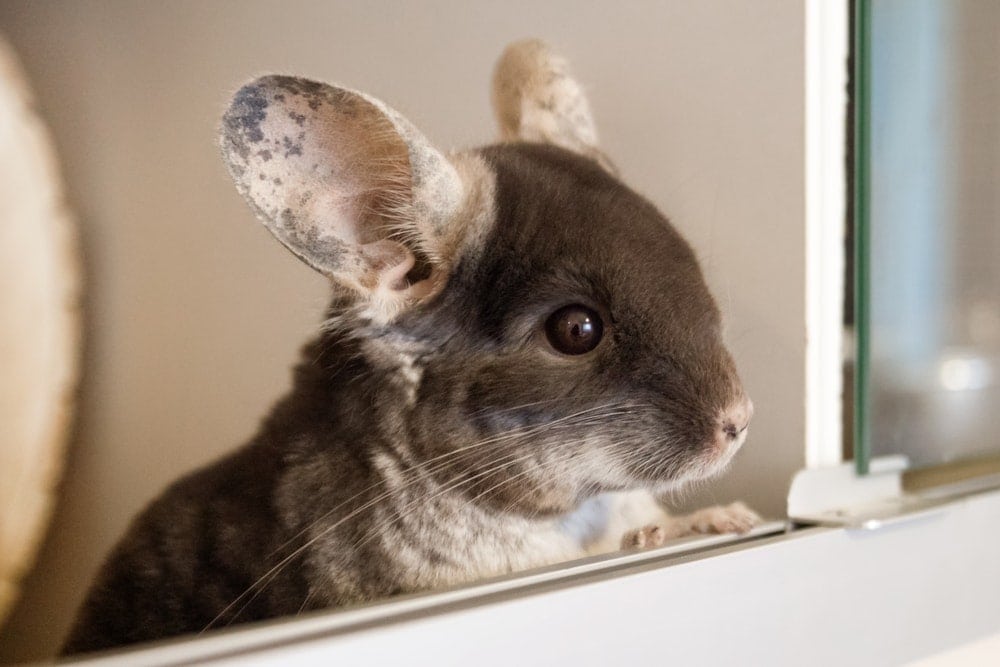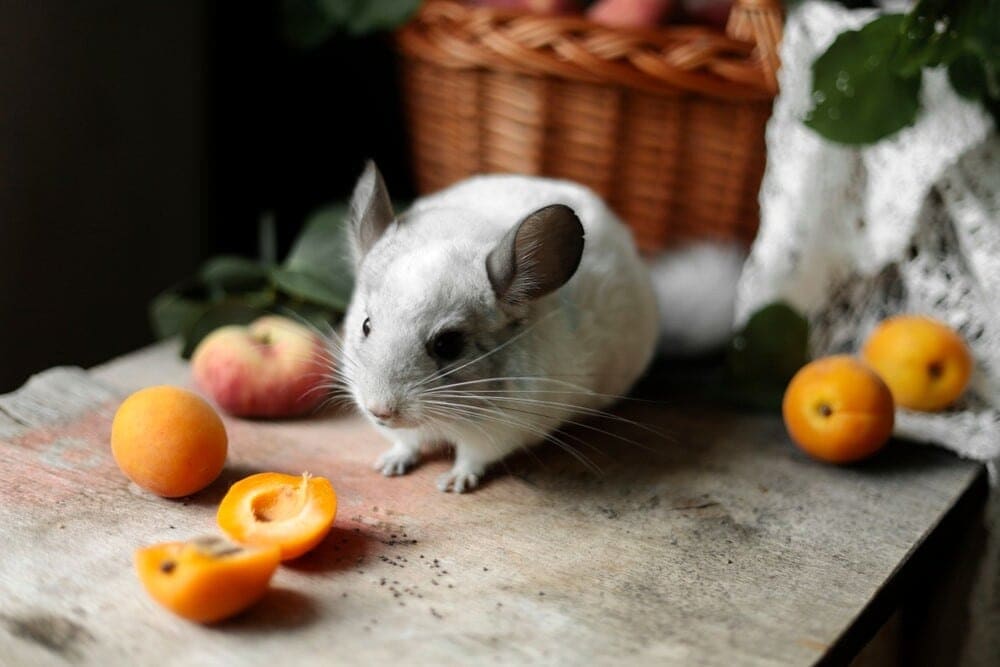It is important that you know if it is a good idea to spay or neuter your chinchilla. This particular issue is crucial for a number of reasons.
You will need to make a point of educating yourself before making a final decision. In this article we will cover everything you should know before going forward.
Is it Absolutely Necessary to Neuter or Spay my Chinchilla?
The fact is that there are no good reasons to have your chinchilla spayed or neutered. The best option when it comes to avoiding unwanted offspring is to keep your male and female chinchillas in separate cages.
While there are some benefits associated with your pet undergoing this type of procedure, there are also risks to consider. This is definitely not the kind of thing that you’ll want to have done on a whim.
Risks Associated with Neutering or Spaying Your Chinchilla
The biggest risk associated with having your chinchilla neutered or spayed is the anesthesia that is required for this type of procedure. If your fluffy friend is fairly old or in poor health, they might not make it. These animals can become stressed out quite easily, so something like this will really take on a toll on their nerves.
There is also the risk of infection, which comes with any type of invasive surgical procedure. Even a simple infection can cost your pet its life, so you need to consider that before making a decision. If your chinchilla does get an infection, it can most likely be treated effectively with antibiotics.
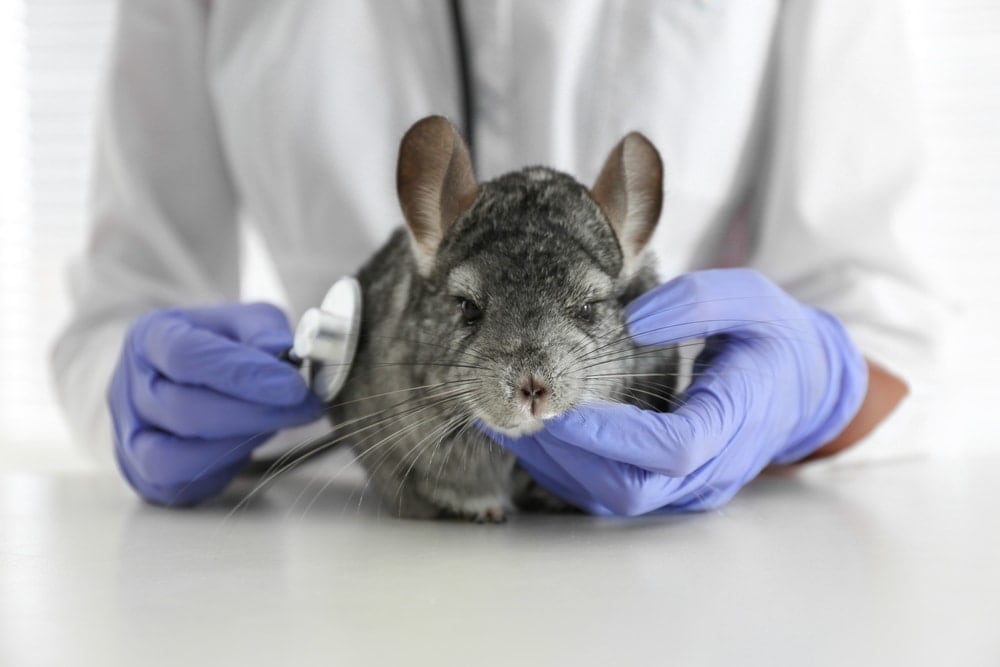
When to Consider Neutering or Spaying Your Chinchilla
There are actually very few scenarios where you should seriously consider having your chinchilla spayed or neutered. If giving birth poses a danger to the female, your vet might recommend having it spayed. This could prevent massive bleeding, which could result in its death.
If you have a male and female chinchilla that have bonded to each other in the same cage, getting one spayed or neutered is certainly an option to consider. In this scenario, you don’t want to separate the animals, but you also don’t want them to mate.
Sometimes separating a pair of chinchillas that have established a strong bond can cause or both of them to become very stressed and anxious. This can have an extremely negative impact on their overall health.
Types of Neutering
When it comes to neutering a chinchilla, there are two different options—open castration and closed castration.
Open castration is where a veterinarian will make a small incision across the testicles, and the wound is left open to heal naturally. Closed castration is where the vet closes up the wound with stitches after the incision is made.
It is important that you discuss these options with your vet before making a decision either way. Keep in mind that open castration comes with a significantly higher risk of infection.
What to Expect When Getting Your Chinchilla Neutered or Spayed
It’s important that you know what to expect when it comes to getting your chinchilla neutered or spayed. While this is a very common procedure, there are still certain things you’ll want to know beforehand.
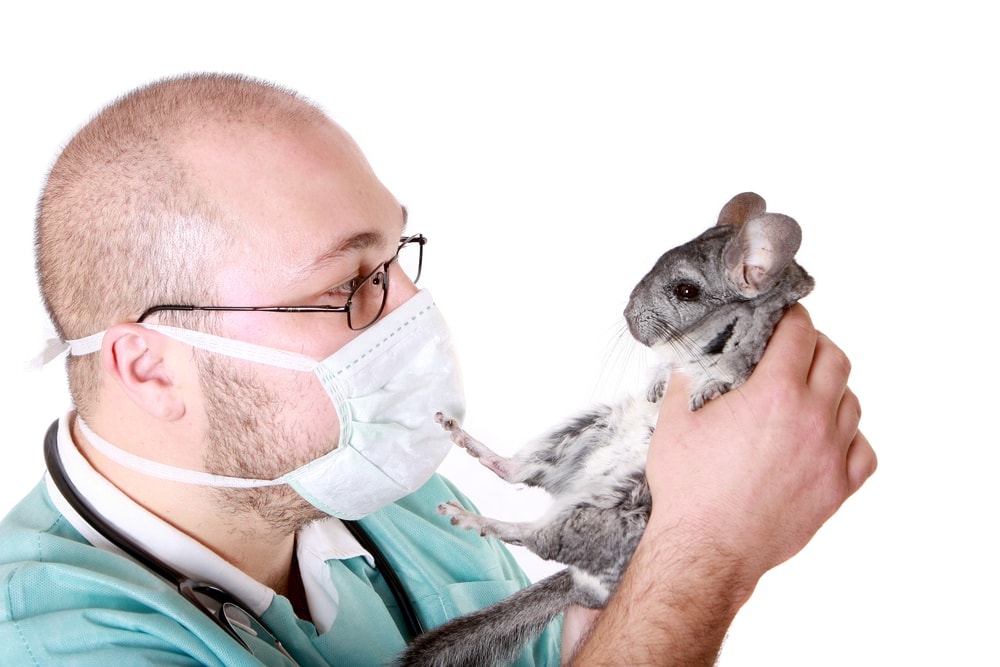
1. Choosing a Veterinarian
It is recommended that you find a veterinarian that specializes in exotic pets. This way you will have no doubts whatsoever regarding their ability to perform this procedure on your pet.
You’ll also want to look for a vet that is fairly quiet, as chinchillas are prone stress and anxiety. If you bring them into a very loud and chaotic office, they are going to become disoriented and on edge. This procedure will go a lot smoother if the vet’s office is calm and at least fairly quiet.
2. Recovery Time
It should only take three or four hours for your chinchilla to get up and moving around after being neutered or spayed. These animals tend to bounce back relatively fast. If you notice that they are still lethargic after the first day, you might need to bring them back in to be seen by the vet.
You should not try to handle your chinchilla at all after it has undergone this sort of procedure. It is a good idea to wait until the following day to pick them up. This will give them the opportunity they need to rest and start moving again at their own pace.
3. Monitoring Your Chinchilla
It is crucial that you closely monitor your chinchilla after it gets neutered or spayed. Look for any strange behavior from your pet within the first week after bringing them back home.
It’s also important to administer any medications that your veterinarian has prescribed to your pet. This will help to ensure the fastest and smoothest possible recovery for your furry friend.
You’ll want to learn about any potential side effects of any medications you are instructed to give your chinchilla. This way you won’t be caught off guard by anything that might happen. Take the time to go through this with your vet before leaving their office.
Conclusion
- In most cases it is not absolutely necessary to spay or neuter a chinchilla.
- If you have a male and a female chinchilla in the same cage, separating them is the best way to avoid unwanted offspring.
- This type of procedure is an option to consider if you don’t want to separate your pets because they have formed a strong bond.
- The anesthesia that is used when spaying or neutering these animals poses a significant risk to them.
- A procedure like this can put a lot of stress on your chinchilla. This level of stress could cost your pet its life.
- There is also the risk of infection that comes with this sort of surgical procedure.
- If you decide to get your chinchilla spayed or neutered, find a vet that specializes in exotic pets.
- You’ll need to keep a close watch on your pet for the first week after it has been neutered or spayed.
- It only takes a few hours for these animals to recover from this type of procedure.
- Make sure that you are aware of any side effects for the medications you were instructed to give your pet post-surgery.
